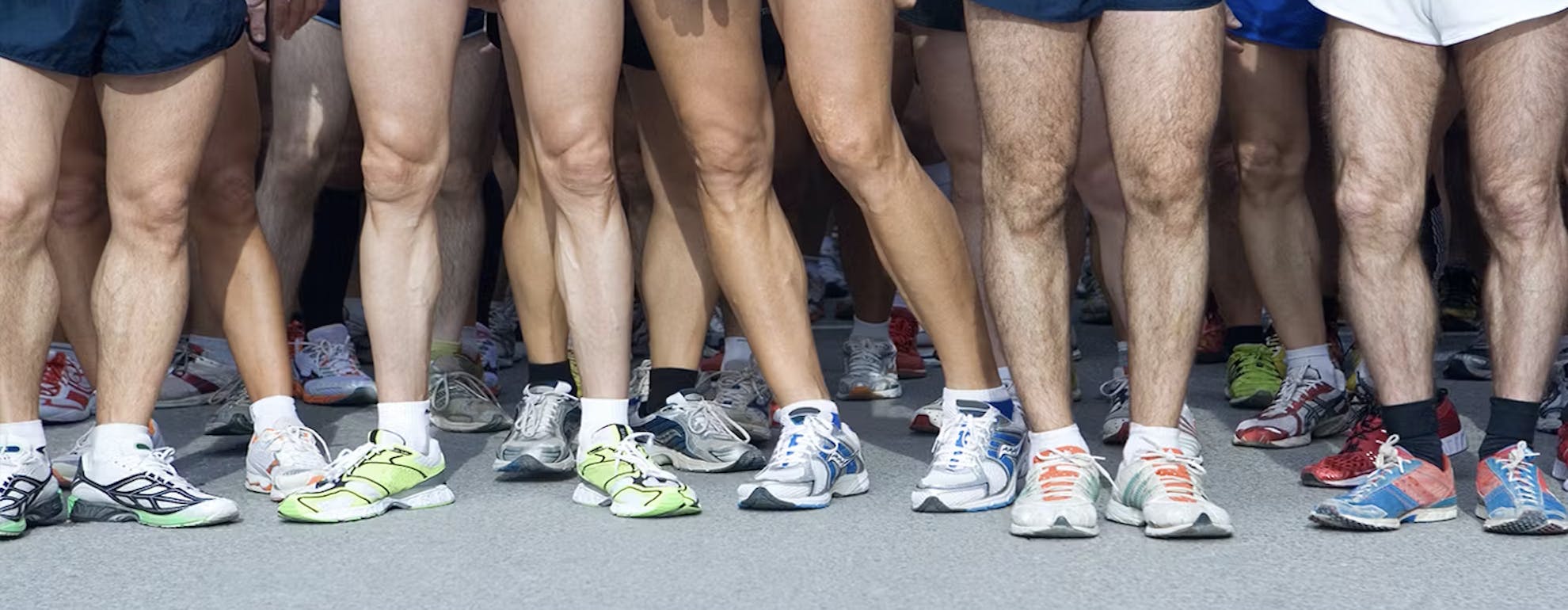
Kit & Gear
GPS Smartwatches for Marathon Running
Marathon training is all about going the distance, and going the distance means running long miles, and structured, quality training and recovery. A GPS device is fast becoming an essential training tool for runners, collecting and utilising our running data to track our key performance metrics and helping us optimise and structure that training. Here’s how harnessing that data can help us get to the start line marathon-ready.
ㅤ
WHY RUN WITH A GPS WATCH?
First and foremost, a GPS device helps us to run smarter. How? By tracking and feeding back our key performance indicators in real time, a GPS device allows us to monitor the quality and intensity of our training, with key metrics such as distance, pace, elevation – as well as factors such as calorie burn, heart rate and estimated recovery time. This allows us to gauge not only how much training we’re doing – but also how effective that training is.
These are useful stats for all runners, but for marathon runners, these KPIs deliver invaluable insight throughout both their training and the marathon itself, allowing them to use that data to structure, adapt and refine their running.
ㅤ
WHAT METRICS ARE TRACKED?
This depends on the spec of the model and a lot will come down to your budget. Generally, the more expensive the model, the more bells and whistles it has and the more data it will track. That said, not all of that data is essential, and it’s important to make a judgement about the key metrics you’ll need and realistically, those you’ll use.
For example, first time marathoners might only be interested in the very basics - tracking their pace and mileage - whereas a more experienced runner looking to improve their marathon time would benefit from more detailed feedback on their performance to allow them to better hone and refine their training. With that in mind, there are key features to look out for that can specifically enhance the training of runners at all levels and abilities.
ㅤ
DISTANCE AND PACE
Without a doubt, the most important element of your GPS device – the ability to track mileage and pace is key for marathon runners – and the days of using maps to gauge how many miles we’re running are long gone. Your GPS device not only tells you how far you’ve run, but also the pace you ran it – feeding this back in real time. This is particularly important for building mileage and also gauging pace during those key tempo and speed sessions. If you’re looking for the one key functionality from your device, this is the absolute must-have.
ㅤ
HEART RATE
Many GPS devices also monitor heart rate, whether that’s via a band that fits around your chest, or a wrist based sensor. This is key for gauging effort during any training session, and allowing runners to accurately train at different intensities and within specific heart rate zones. This comes in particularly handy on easy run days, tempo sessions and intervals where an accurate gauge of intensity is key to getting the most from that session . It also helps us factor in external factors that impact on training intensity such as heat and humidity.
ㅤ
ELEVATION
At first glance, this might not seem so important – we all know when we’re running up a hill…right? Not always. Sometimes what seems like a flat surface can often be a slight incline. Tracking elevation also helps us make sense of other performance data – that slower mile or increased heart rate might have coincided with a steep incline, and likewise a faster streak might have been due to a sweet downhill section. Tying in elevation to our performance stats gives us a more realistic overview of any single training session.
ㅤ
VIRTUAL RUN COACHING
Not many of us have access to our own running coach – and here’s where some of the more advanced GPS watches come into their own. These watches include training mode functionalities to help us train to a specific type of session. So, if for example you’ve got an interval session scheduled in, you can programme your watch in advance to structure that session according to duration or distance. Your watch will then alert you when you need to shift up or down a gear, as well as giving you a virtual nudge if you drop below your target pace. And that’s not all, some devices can even create specific and adaptable training plans, based on your personal activity and data.
ㅤ
TRAINING EFFECT
This functionality gathers your multiple KPIs to calculate the training effect of each session and its overall physiological impact on your fitness. This usually involves allocating a number to that run, denoting whether for example that session was sufficient to maintain current fitness, improve aerobic or anaerobic fitness or whether that session was overreaching on effort. This in turn helps us to adapt and plan future sessions on the basis of that feedback.
ㅤ
RECOVERY
Implementing structured recovery is key to avoiding injury and overtraining in marathon runners. Using key performance metrics, this functionality calculates how long the body needs to recuperate after training. This is usually based on duration and intensity – and taking the cumulative effects of training into account, gives an estimate of the period needed to allow the body to actively repair and recover.
ㅤ
FUNCTIONALITY AND EASE OF USE
Put simply, your GPS device should be as easy to use as possible with easy access to specific data fields while you train. There is no point in recording vast amounts of data if it’s hard to view key real time stats such as pace, distance and heart rate while you’re running. The last thing anyone wants is to be fiddling with their watch trying to find the relevant data field rather than focusing on the run – make sure you’re happy with the basic functionality of your device before you buy it.
ㅤ
LOGBOOK & ONLINE PLATFORM
Most GPS devices are also supported by an online platform, such as Suunto’s Movescount or Garmin’s Connect which both log and give a more comprehensive overview of your training activity and break down of your training data. This in particular gives you an overall view of your weekly and monthly mileage, and allows you to see your progress and improvements. That’s not only great for monitoring and adapting your training load and identifying where you can make improvements, but can also be a great motivational tool to look back and see how far you’ve come.
ㅤ
THE FINAL TAKEAWAY
Ultimately, even the most basic GPS device is an effective tool for marathon training - at the very minimum in helping to accurately establish pace and mileage – both of which are essential for marathon training. How much data you want to track comes down to your experience as a runner and your ultimate marathon goal.
Consider what data will be useful to you, and use this to help determine which model to opt for. First timers looking to get round often only need a basic GPS to track base distance and mileage, whereas a more experienced marathoner looking to hone performance can benefit from an all singing and dancing model with full and comprehensive data tracking.
ㅤ
Shop our range of GPS watches here.
Interested in the latest shoes, apparel and technology? Then head over to our Kit & Gear category for more reviews, tips, advice and product releases.
Welcome
Welcome to SportsShoes Kit & Gear Hub! Here you'll find all the information and advice you need about the very latest kit, technology and gear.
Read More
Share this
Featured articles
View All



